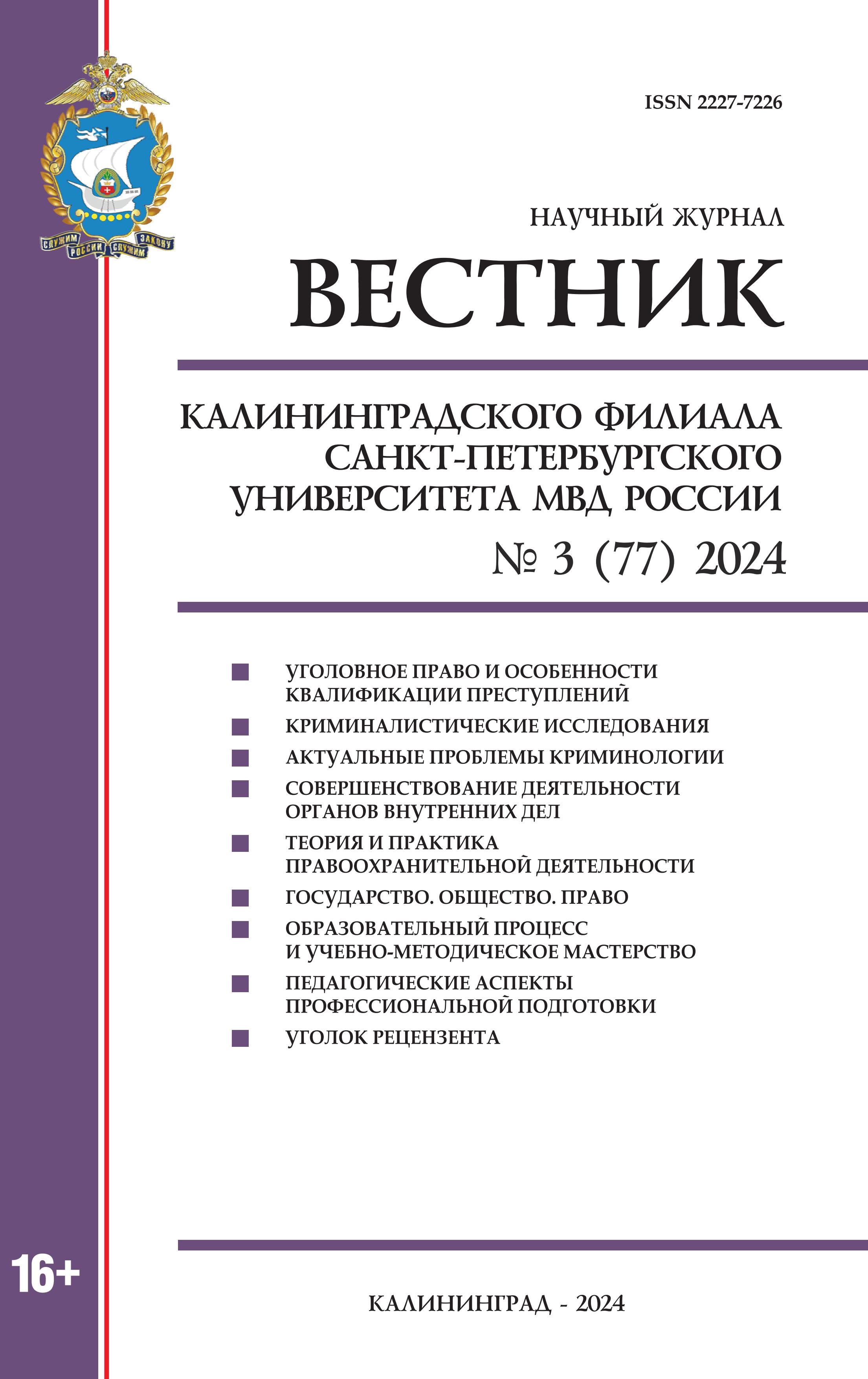Volgograd Academy of the Ministry of Internal Affairs of Russia (Associate Professor)
Federal State Treasury Educational Institution of Higher Education "Volgograd Academy of the Ministry of Internal Affairs of the Russian Federation" (Russia, 400075, Volgograd, Istoricheskaya St., 130) (Department of Philosophy, Associate Professor)
Volgograd, Volgograd, Russian Federation
UDC 1
CSCSTI 02.00
Russian Classification of Professions by Education 47.00.00
Russian Library and Bibliographic Classification 6
Russian Trade and Bibliographic Classification 8
BISAC PHI PHILOSOPHY
Introduction.In the modern world, obtaining higher education is based on the forms and methods of philosophical knowledge. Hence, there is a social order for training graduates who must think pragmatically, professionally and be able to enter the context of modern information processes. At the same time, higher education becomes utilitarian knowledge for a narrow sphere of professional knowledge and skills, which is typical for the system of the Ministry of the Interior of Russia in general. An important role in the formation of future specialists for the internal affairs bodies is given, in particular, to teachers of philosophy. Philosophical disciplines such as rhetoric, logic, philosophy are the area of spiritual culture that is distinguished by a creative, non-standard approach to understanding reality. Only when both aspects – creative and pragmatic – are organically combined in the educational process, can we talk about certain educational results. Methods. The study used a set of general scientific theoretical and empirical methods of cognition, in particular, dialectical and inductive methods. The analysis method was used to study the components of the methodology for teaching philosophical disciplines. In addition, the following were in demand: the description method (for studying the methods of teaching philosophical disciplines in the higher education system); abstraction and generalization (for systematization of the established facts and their interpretation). Results. The author of the article comes to the conclusion that the basic criterion for assessing the effectiveness of the activities of a philosophy teacher is the level of formation of the graduate's personality, his readiness to skillfully solve, based on civic positions, professional tasks, to bear responsibility for the quality of his actions, to restructure his own law enforcement activities in the context of socio-economic reform of society in our country.
Spiritual values, higher education, humanism, philosophical culture, philosophy teacher.







